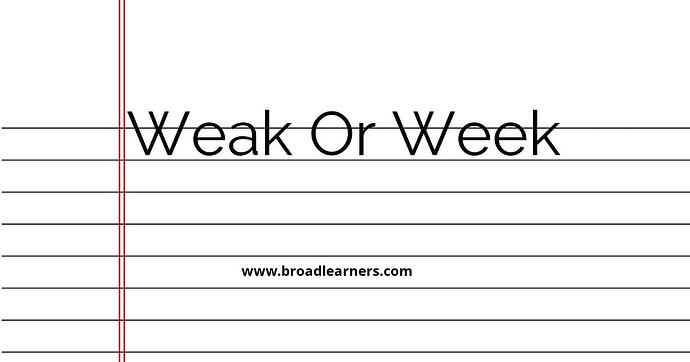'Weak' and 'week' are commonly confused words in English grammar. Understanding the difference between 'weak' and 'week' is important to use them correctly in written and spoken English.
'Weak' is an adjective that means lacking in strength or power. It describes something that is not strong physically, mentally, or emotionally.
'Week' is a noun that refers to a period of seven days. It is also used to indicate a specific time frame, such as a work week or a school week.
Let's take a closer look at the meanings and usage of 'weak' and 'week'.
| 'Weak' | 'Week' |
|---|---|
| The word 'weak' is used to describe something lacking in strength or power. | The word 'week' is a noun that refers to a period of seven days. |
|
|
To remember the difference between 'weak' and 'week', it can be helpful to associate 'weak' with lack of strength or power, while 'week' refers to a specific period of time.
Here are some examples of correct usage:
- He is too weak to lift the heavy box.
- We have a meeting next week.
- I need a break after a long week of work.
- She felt weak after running for an hour.
Remembering the correct usage of 'weak' and 'week' will improve your grammar and communication skills.
